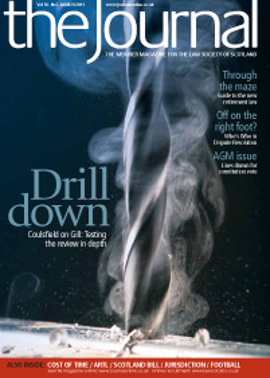Sharing the spoils

Until the landmark ruling of Kelly and Chiu v GE Healthcare Ltd (discussed Journal, March 2009, 43) there had not been a successful award for inventor compensation under the Patents Act 1977, and the Act’s provisions were often regarded as of little interest in practice. Not surprisingly, greater attention has been paid following the £1,500,000 awarded to Drs Kelly and Chiu. Indeed, given that such claims may be brought years after an invention was conceived or first exploited, some employers fear a raft of claims following the decision.
Against this background it is noteworthy that the provisions have already been considered again, as part of the Court of Appeal decision in Unilever v Shanks [2010] EWCA Civ 1283. Reassuringly, the decision points to the courts adopting a reasonable approach.
Group exploitation
Professor Shanks was an employee of Unilever UK Central Resources Ltd (“CRL”) when he invented a measuring device for use in diabetic blood testing kits. Under s 39 of the Act CRL, as his employer, was owner of the underlying invention and therefore entitled to file for patent protection. CRL assigned the product to group company Unilever plc (“Unilever”) for a nominal sum. After about 10 years, Unilever licensed the invention to third party companies, earning £23 million in royalties before the patent expired.
Sections 40 and 41 of the Act state that where an invention (or a patent granted in respect of it) is of outstanding benefit to the employer, taking the size and nature of the employer’s undertaking into account, compensation may be awarded to the relevant employee. The amount is to be a fair share of the benefit the employer has derived, or may reasonably be expected to derive, from the patent. Where the employer assigns the patent to a connected party, under s 41(2) the amount of the benefit derived, or expected to be derived, by the employer shall be the amount that could reasonably expected to be derived if that person had not been connected to it.
Professor Shanks brought a claim for compensation, relying on the phrase “may reasonably be expected to derive”. He argued that, in the context of an intra-group assignment, the value of the invention should be that which a notional assignee would have generated had they fully exploited the invention. Had Unilever done so, for example by commercialising it sooner, it could have earned £1 billion in royalties, far in excess of the £23 million actually generated.
Actual benefit to actual employer
The Court of Appeal held that compensation must be calculated by reference to the actual and not a notional employer, and by the real, actual benefit received. Even if an invention had been immensely valuable and a patent for it could have been, or could be if still in force, exploited for a vast sum, this is irrelevant. The inventor’s scope for compensation is restricted by the actual exploitation by their employer and the provisions are not some kind of “best endeavours to exploit” requirement.
The court held that the phrase “reasonably expected to derive” requires the parties to consider the future benefits which would be likely to accrue, for example where the patent has yet to expire. It does not imply a notional general benefit in the market. Indeed a calculation of compensation based on the £1 billion royalties could result in Professor Shanks potentially receiving more by way of compensation than Unilever actually received in royalties.
Considering the impact of the assignment from CRL to Unilever, the terms of s 41(2) did not mean that a notional assignee should be considered. The intention of s 41(2) was to ensure that the inventor received the same benefit whether the invention was exploited by the employer or a connected party assignee of the employer.
As the actual sum received by Unilever was £23 million, the court held that this was the sum to be used in calculating Professor Shanks’ fair share.
Delicate timing
The decision provides some welcome clarity around the application of the 1977 Act, and the commonsense approach of the Court of Appeal should hopefully assist in preventing unreasonable expectations and claims from employees.
Furthermore, as a result of the decision, employers and employees alike should consider their strategy regarding compensation. As the calculation will be based on the actual benefit derived, there may be a timing issue to consider for both sides. Employers will not want to overcompensate employees at an early stage, on the basis of anticipated value, when it is notoriously difficult to value an invention; however if they wait too long the actual benefit could be greater. Employees on the other hand will want to give the invention time to generate revenue and justify a future valuation of the patent; however waiting too long could be detrimental if the invention proves less exploitable.
In this issue
- The case for full disclosure of laboratory case files
- Why join the Scottish Family Law Association?
- Above board
- Time to be counted
- Taking out rejections
- Updating the constitution
- Every bit helps
- Retiring the default age
- Keeping a grip on cash
- Watch this space
- The diehards
- Win-win ways
- "Virtual fair" opens for career options
- Law reform update
- Society's in-house work under scrutiny
- Watching over the constitution
- All aboard life's U-bend
- Ask Ash
- Working to advantage
- Frauds and scams beware
- Lay help... official
- Lacuna manufacturing
- This time it's NOT personal
- Fairness and trust
- Pensions: redefining value
- Sharing the spoils
- World IP Day 2011 approaches
- Life v reputation
- Book reviews
- ARTL, by degrees
- Contaminated land - the story continues






